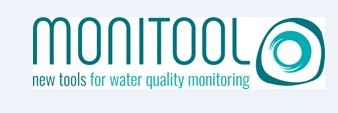Heartfelt congratulations to Water Institute PI’s Blanaid White and Fiona Regan on their success in achieving funding for their Interreg proposal MONITOOL!
MONITOOL is a three year project funded by the Interreg Atlantic area European Regional Development Fund. The project is based on Directive 2013/39/EU on priority substances in water policy. MONITOOL will obtain relevant information to the EU to be potentially included in the revision of the Directive 2013/39/EU that supports the Marine Strategy Framework Directive and the Water Framework Directive.
The main driver of this project is to respond to European Directive demands for the assessment of chemical status of transitional and coastal waters. The quantification of WFD Priority Substances and emerging contaminants is of capital importance to implement the European policies for the protection of the marine environment. However, in many cases it is very difficult or even impossible, by traditional techniques. There is an urgent need to find accurate, reliable, easy and cost-efficient alternatives. Passive sampling devices (PSDs) have several advantages compared to conventional monitoring methods, and the labile concentrations determined by PSDs are recognised to provide a better scientific basis for risk assessment.
However, the 2013 EQS Directive (2013/39/EU) states that EQSs are defined as dissolved concentrations (metals), total concentrations in whole water (organic contaminants), or concentrations in biota (hydrophobic organics). This legally binding definition remains an obstacle to the use of PSDs in compliance monitoring within the EU. This project is deemed to be very pragmatic by: -adapting suitable EQSs for priority and specific metals to allow the use of PSDs in a regulatory context, enhancing the implementation of the WFD; -demonstrating the cross-Regional (Canaries – Highlands and Islands) applicability of PSDs in water monitoring and assessment by co-deployment of PSDs and spot samples.
The consortium involves nine national/regional Marine Research Institutions covering seven eligible regions of the North Eastern Atlantic Area (NEA) from Canary Islands to the Highlands and Islands, from South to North: ITC in Canary Islands (SP), IPMA and IST in Lisbon (PT), AZTI in Basque Country (SP), IFREMER in Pay de Loire (FR), CEFAS in Dorset (UK), DCU in Dublin (IR) and MSS in Scotland (UK). The consortium also includes a partner from Italy (Mediterranean area) to provide regional data for more European EQS consistency.
All these institutions have vast experience in the marine environment and on the use of passive sampling, being involved in monitoring programs, in scientific papers and projects, as well as in technical Working Groups (ICES, WFD). The consortium includes also 7 different entities that will be end-users of the project results, including the Marine Institute and Environmental Protection Agency in Ireland, and are able to provide the project with the oversight required to ensure it meets their needs. The partnership gives a range of opportunities of collaboration between expert laboratories and end-users to addresses common issues which require a joint response. This collaboration will ensure transfer of best practice to key bodies responsible for monitoring chemical status across the region.

